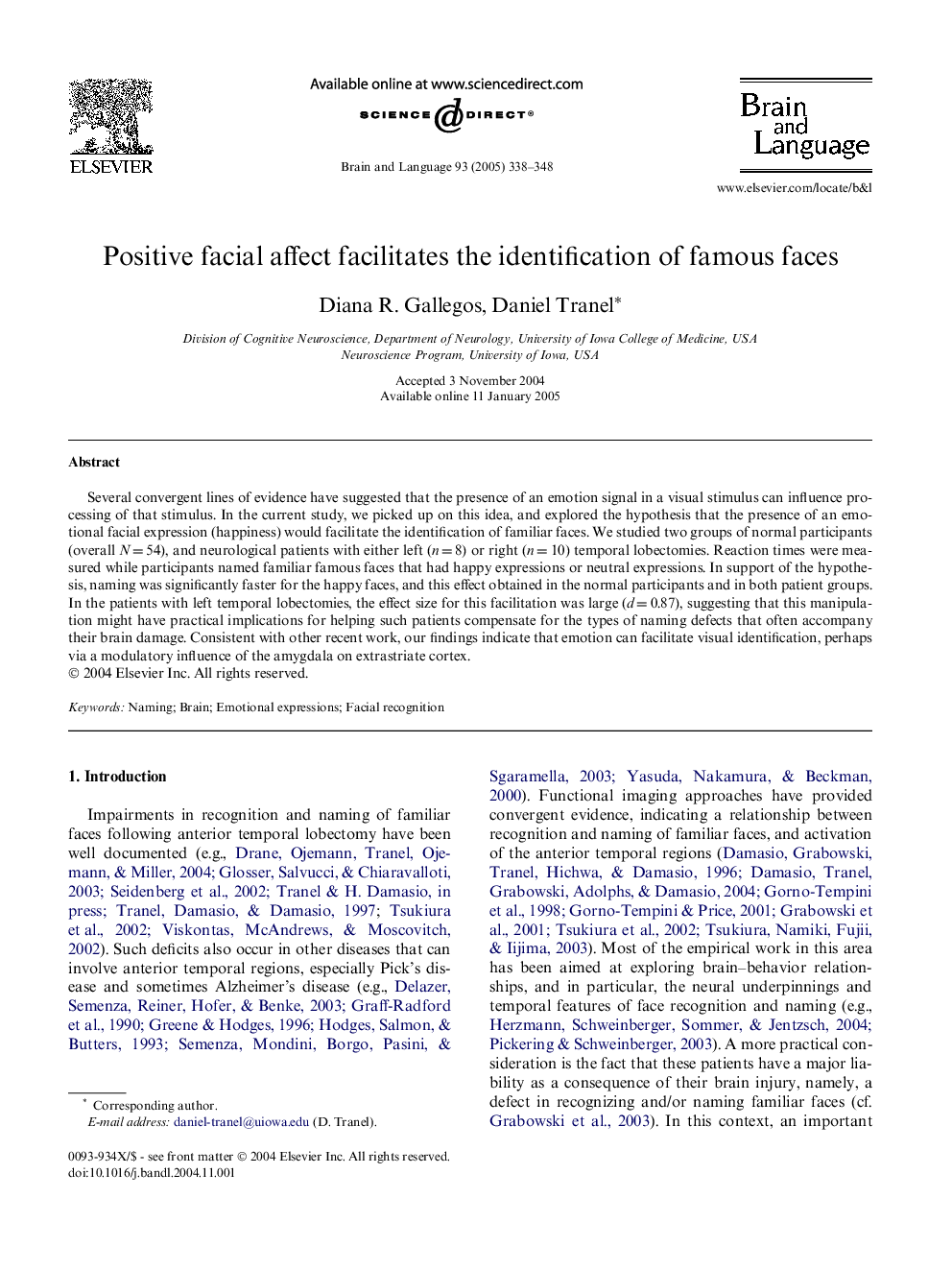| Article ID | Journal | Published Year | Pages | File Type |
|---|---|---|---|---|
| 10456871 | Brain and Language | 2005 | 11 Pages |
Abstract
Several convergent lines of evidence have suggested that the presence of an emotion signal in a visual stimulus can influence processing of that stimulus. In the current study, we picked up on this idea, and explored the hypothesis that the presence of an emotional facial expression (happiness) would facilitate the identification of familiar faces. We studied two groups of normal participants (overall N = 54), and neurological patients with either left (n = 8) or right (n = 10) temporal lobectomies. Reaction times were measured while participants named familiar famous faces that had happy expressions or neutral expressions. In support of the hypothesis, naming was significantly faster for the happy faces, and this effect obtained in the normal participants and in both patient groups. In the patients with left temporal lobectomies, the effect size for this facilitation was large (d = 0.87), suggesting that this manipulation might have practical implications for helping such patients compensate for the types of naming defects that often accompany their brain damage. Consistent with other recent work, our findings indicate that emotion can facilitate visual identification, perhaps via a modulatory influence of the amygdala on extrastriate cortex.
Related Topics
Life Sciences
Neuroscience
Biological Psychiatry
Authors
Diana R. Gallegos, Daniel Tranel,
